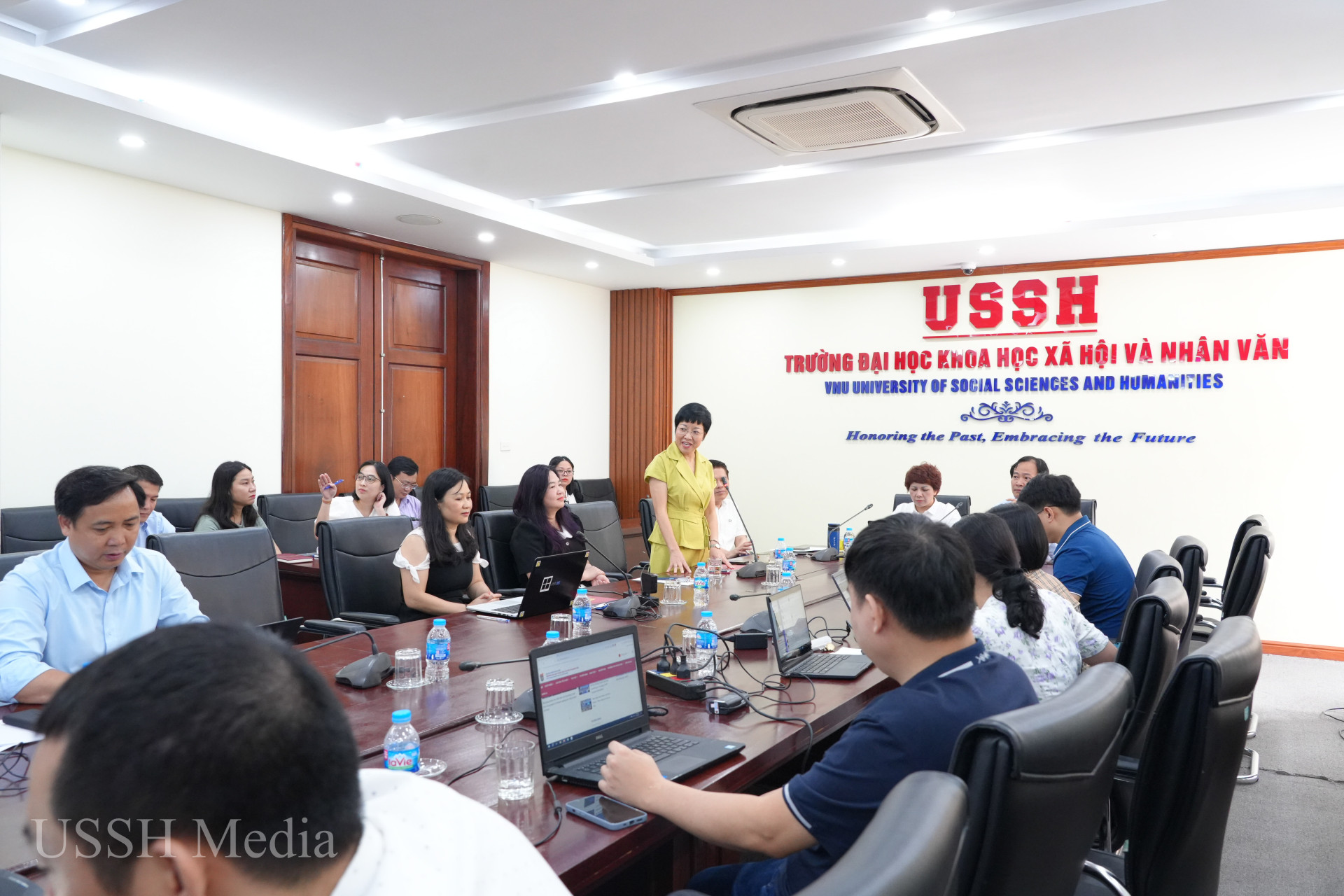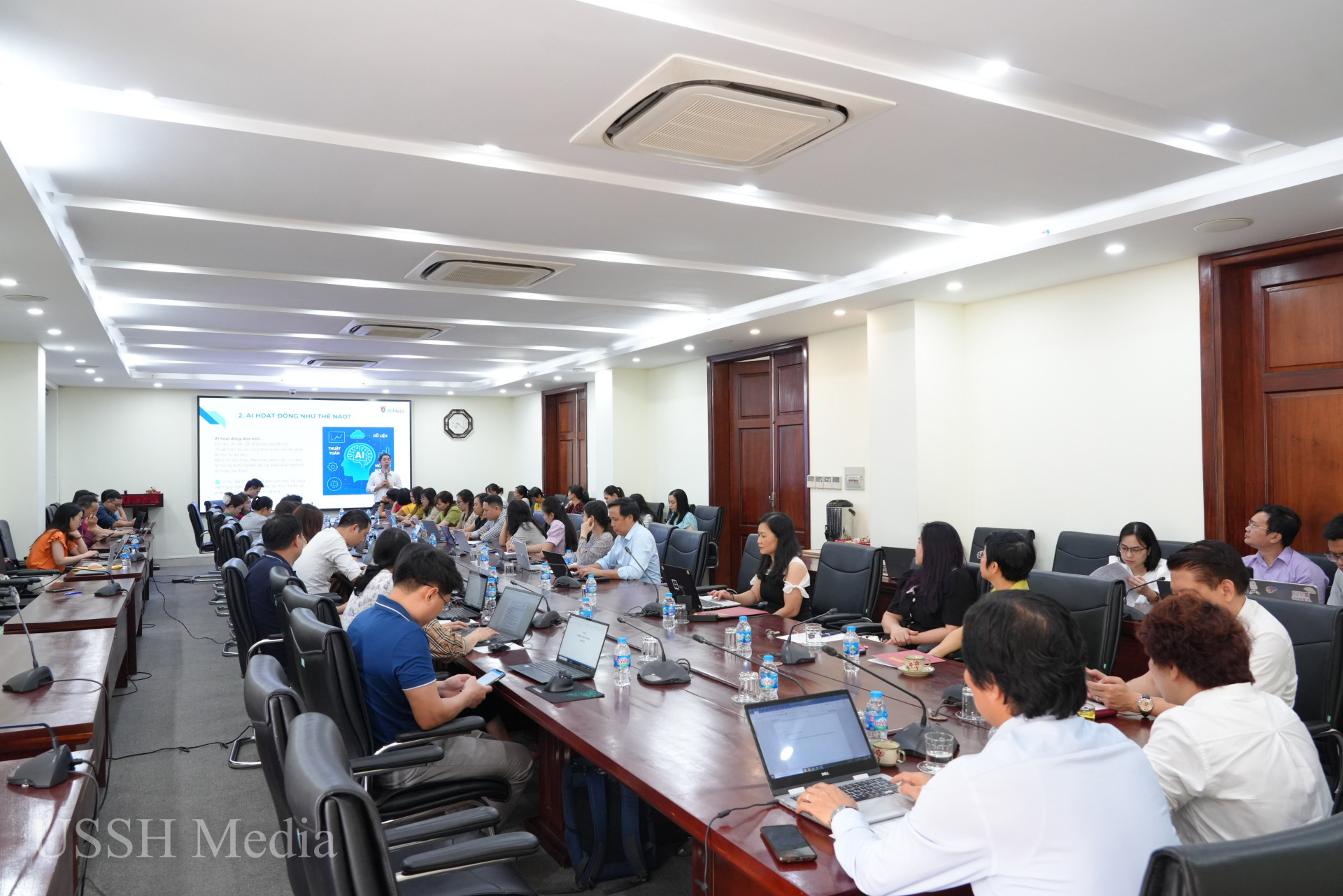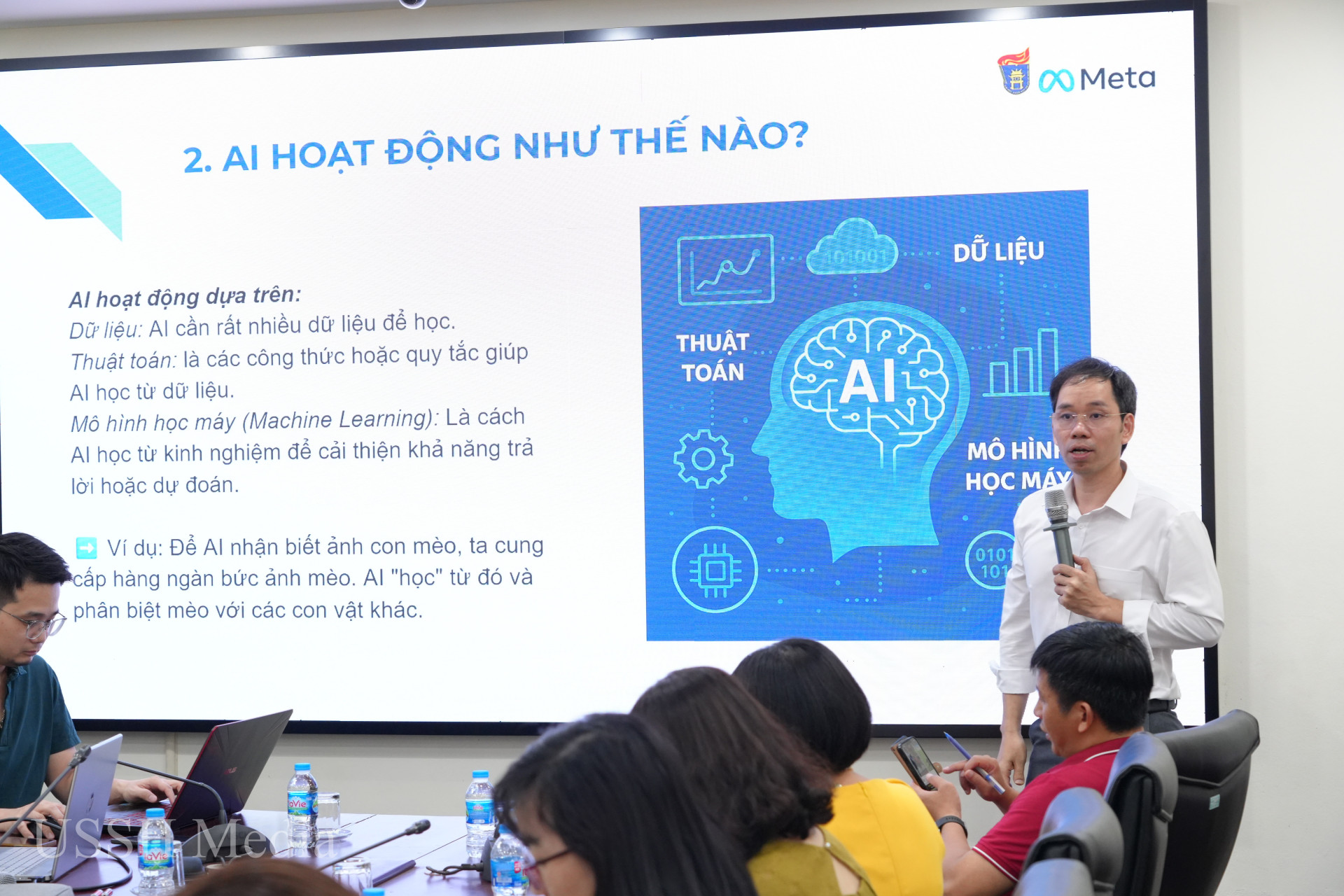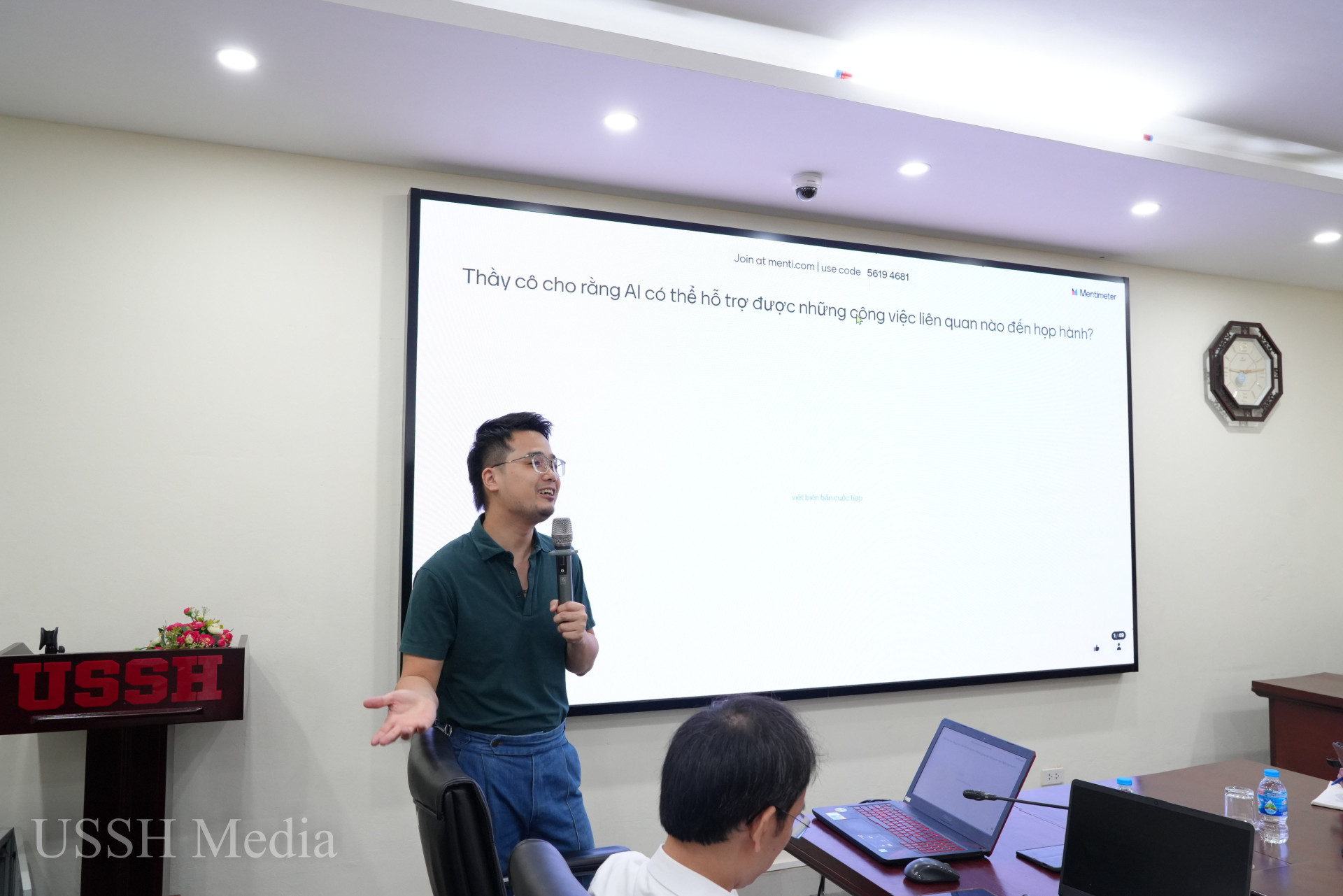In the era of digital transformation, artificial intelligence (AI) is increasingly demonstrating its crucial role in improving the operational efficiency of organizations, from the economic, political, cultural, and social sectors to education. One prominent, yet often overlooked, application is the use of AI to organize and manage meetings. In educational institutions, characterized by their academic and systemic nature, AI opens up opportunities to comprehensively improve the meeting process, from preparation and implementation to summary and post-meeting follow-up. This not only saves time and reduces manual work but also enhances decision-making quality, significantly contributing to the digital transformation of higher education.
With the desire to share and spread the practical applications of AI in organizing, conducting, and managing meetings, on the morning of June 10, 2025, at the University of Social Sciences and Humanities, the Trade Union of the University of Social Sciences and Humanities, in coordination with the Trade Union of the Faculty of Information and Library Science, organized a seminar on the topic "Applications of AI in Organizing Meetings".
The seminar was attended by Ms. Nguyen Thi Thao, M.Sc. - President of the Trade Union of Hanoi National University; Assoc. Prof. Dr. Bui Thanh Nam - Secretary of the Party Committee, Chairman of the University Council; Dr. Ngo Thi Kieu Oanh - Standing Committee member of the Party Committee, President of the University's Trade Union, along with 60 lecturers and teachers who are union members from the University's departmental trade unions.
Ms. Nguyen Thi Thao, Chairperson of the Trade Union of Hanoi National University, delivered a speech at the seminar.
At the seminar, speakers Dr. Dao Minh Quan and MSc. Tran Duc Hoa from the Information and Library Science Faculty's Trade Union pointed out the challenges we face in organizing traditional meetings. These challenges include organizers often lacking the time to plan, develop meeting scripts, or prepare accompanying documents systematically and professionally; manual note-taking and post-meeting summaries easily lead to errors, omissions, or inconsistencies between sessions; and difficulties in managing and analyzing information to make decisions. These challenges highlight the need to apply artificial intelligence (AI) technology to comprehensively improve the meeting process before, during, and after the meeting.
The seminar attracted a large number of union members.
The main points shared by speakers at the seminar involved the application of typical AI tools such as ChatGPT, Gemini, NotebookLM, AI Studio, Napkin, and Memobot, to: Support meeting content preparation: building meeting plans and scripts based on specific topics and objectives; suggesting reference materials and quickly creating accompanying documents; and visualizing information from reports (charts, timelines, processes).
Deployment and support during meetings: AI acts as an "intelligent assistant," recording and transcribing speech in real time, ensuring no content is missed; it automatically takes notes on key points, distinguishing between speakers.
Meeting Summary and Tracking: After a meeting concludes, AI continues to assist us by automatically generating meeting minutes, summaries, or detailed content recordings; identifying and listing tasks arising from the meeting; suggesting appropriate personnel for each task based on the discussion content; drafting notification emails and summarizing conclusions to send to members; and supporting the planning and tracking of agreed-upon work progress.
Dr. Dao Minh Quan shared this at the seminar.
MSc. Tran Duc Hoa shared this at the seminar.
The seminar "Applications of AI in Meeting Organization" provided faculty and staff with a comprehensive, clear, and practical understanding of the role of AI in improving meeting management processes. In a higher education environment, meetings not only help update information and finalize plans but also serve as a forum for making important decisions related to training, teaching, research, and event organization. The seminar was an opportunity for faculty and staff to update themselves on new technological trends, access modern AI tools, and gradually apply them to their daily work in a flexible and effective manner.
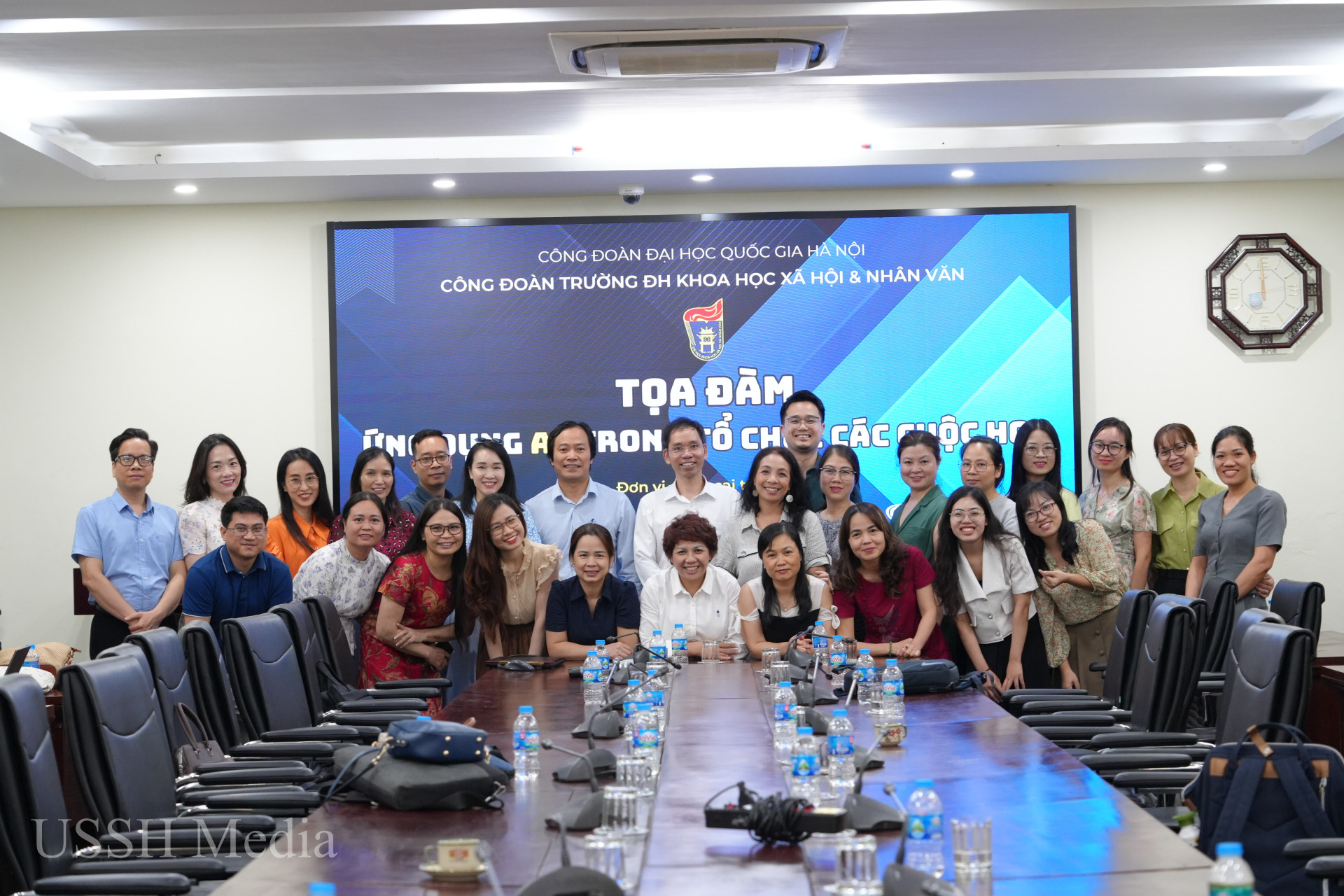
Applying AI to meeting organization is not only a solution to current challenges but also a crucial step in the comprehensive digital transformation of the education sector. When daily activities are optimized by technology, people will have more time and energy to focus on more strategic tasks. Today's seminar is not only an opportunity to share knowledge but also a reaffirmation: Digital transformation is not a distant dream – it begins with each meeting, each small but highly practical task.
